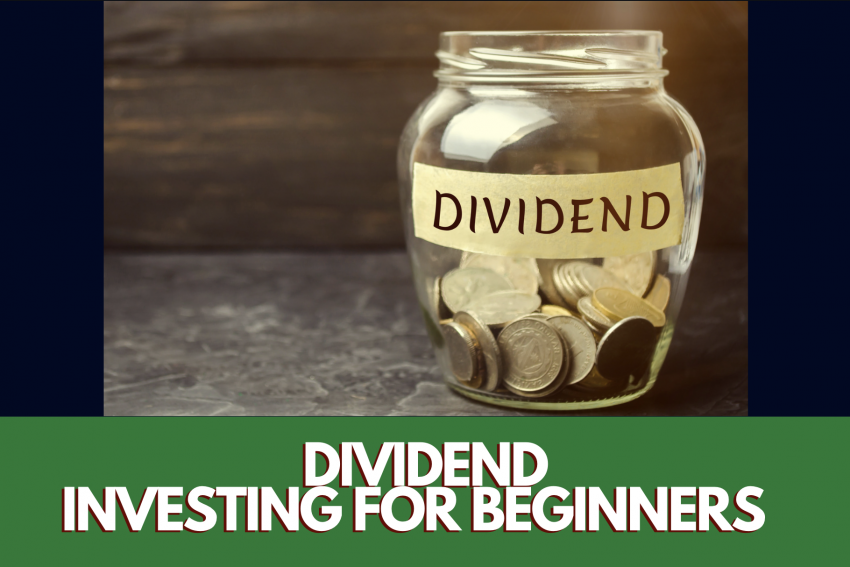Dividend investing is a popular strategy used by investors to generate passive income and potentially grow their wealth over time. The concept is simple: invest in stocks that pay out a portion of their earnings to shareholders in the form of dividends. These dividends can then be reinvested to purchase additional shares, providing a compounding effect that can lead to potentially impressive long-term returns.
In this article, we’ll explore the benefits of dividend investing, how to get started, and provide some tips and strategies for maximizing your returns. Let’s get started!
Benefits of Dividend Investing
- Passive Income: Dividend-paying stocks provide a regular source of passive income, allowing investors to earn money without having to actively work for it.
- Compounding: By reinvesting dividends, investors can take advantage of compounding, where the reinvested dividends earn more dividends, leading to a snowball effect that can result in impressive long-term returns.
- Reduced Volatility: Dividend-paying stocks tend to be less volatile than non-dividend paying stocks, as the dividend provides a floor for the stock price and can help stabilize the stock during market downturns.
- Growth Potential: Dividend-paying stocks can also provide growth potential, as companies may increase their dividend payments as their earnings grow, leading to higher returns for investors.
How to Get Started with Dividend Investing
- Research: Start by researching dividend-paying stocks that align with your investment goals and risk tolerance. Consider seeking out companies with a history of paying consistent, reliable and growing dividends.
- Brokerage Account: Open a brokerage account with a reputable online broker, such as Fidelity, Charles Schwab, or Robinhood.
- Screening Tools & Platforms: Consider using a stock screening tool or investment research platform, such as Finviz or Yahoo Finance, to identify dividend-paying stocks that meet your criteria.
- Dividend Yield: Focus on stocks with a high and sustainable dividend yield, which is the ratio of the annual dividend per share to the stock’s current market price.
- Dividend Payout Ratio: Additionally, consider the dividend payout ratio, which is the percentage of earnings paid out as dividends. A sustainable payout ratio is typically considered 50% or less, but it can vary on the industry and specific sector as well.
Tips and Strategies for Maximizing Returns
- Diversification: Spread your dividend stocks across different sectors and industries to reduce risk and increase potential returns.
- Long-term Focus: Dividend investing is a long-term strategy, so focus on holding stocks for years, not months.
- Reinvest Dividends: Take advantage of compounding by reinvesting dividends to purchase additional shares.
- Monitor Your Portfolio: Regularly monitor your portfolio and make adjustments as needed, such as selling underperforming stocks or adding new positions. Portfolio rebalancing can potentially be a beneficial addition to your investment strategy.
- Growth Stocks: Consider investing in growth stocks that also pay dividends, as these stocks have the potential to provide both growth and income.
- Dividend Aristocrats: Invest in S&P 500 Dividend Aristocrats, which are companies that have increased their dividend payouts for at least 25 consecutive years.
- Dividend Kings: Invest in Dividend Kings, which are companies that have increased their dividend payouts for at least 50 consecutive years.
Conclusion
Dividend investing is a powerful strategy for generating passive income and potentially growing your wealth over time. By researching and investing in high-quality dividend-paying stocks, reinvesting dividends, and focusing on the long-term, you can potentially achieve impressive returns. Remember to diversify your portfolio, monitor your investments, and consider investing in growth stocks that also pay dividends. With patience and discipline, dividend investing can be a rewarding and profitable strategy for investors of all levels.





I enjoy your website, obviously, but you should check the spelling on a number of your posts. A number of them have numerous spelling errors, which makes it difficult for me to tell the truth, but I will definitely return.
Will do, thanks for the information on that. Agreed. I have been trying to go back and correct a lot of content that was originally drafts in the beginning. Tomorrow I will be hitting it hard with another 10 to 20 articles completed, formatted and reader friendly.